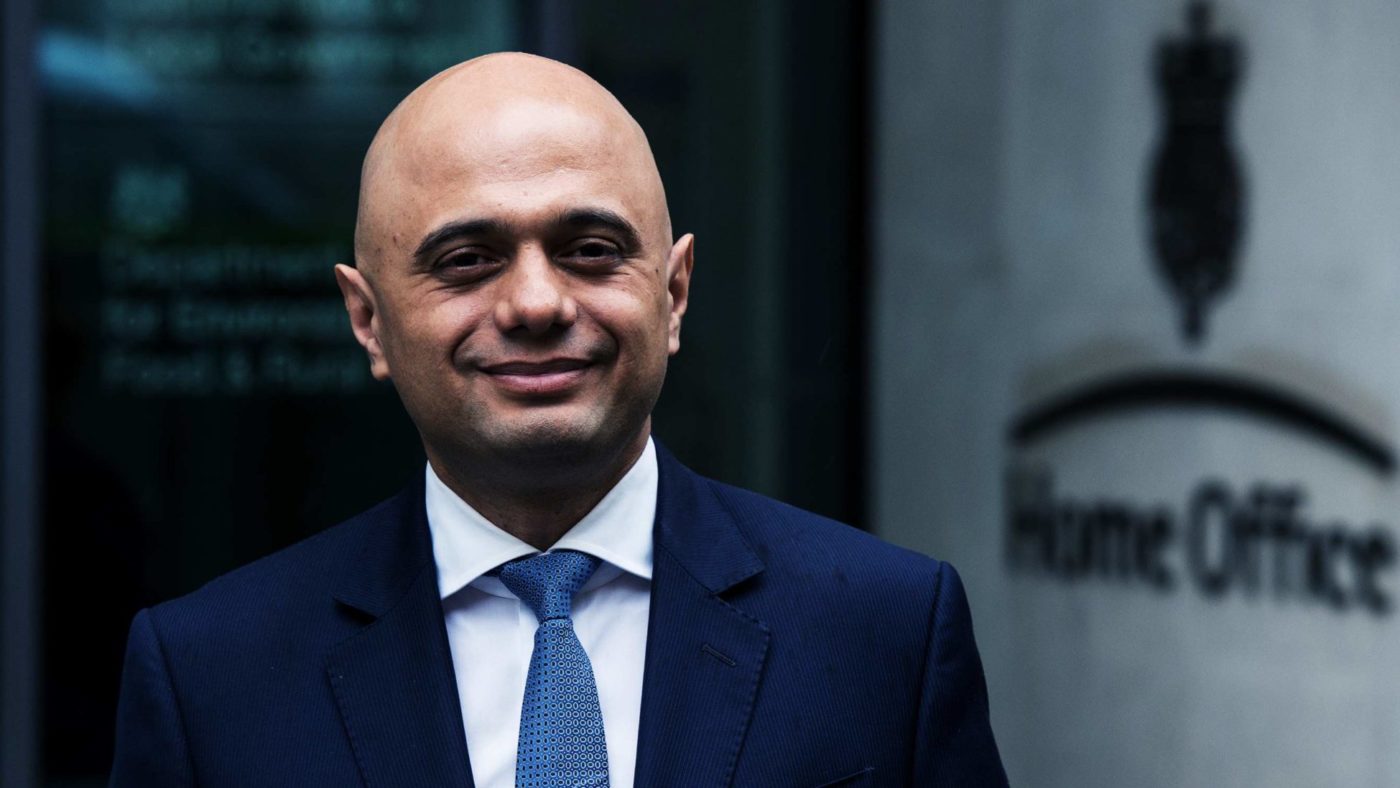Sajid Javid could hardly have a fuller in-tray waiting for him at the Home Office.
First, there’s the Windrush scandal, which does not end with Amber Rudd’s departure. This weekend, Javid said that upon learning about the treatment of people who arrived in Britain 50 years ago, he thought “that could be my mum… my dad… my uncle… it could be me.” His determination to right the Windrush wrongs cannot be in doubt.
Then there are his two big Brexit-related challenges. The first is updating the status of EU citizens who want to stay in Britain after Brexit. Judging by what we have learned in the last few weeks, the Home Office in its current state is ill-equipped to navigate this administrative minefield humanely and efficiently.
The second is the small matter of designing a new immigration system. Britain can only get away with the rigidity of its current system because of freedom of movement. Simply sticking with the status quo will not do, but, as the delay of the immigration bill until early next year indicates, coming up with a politically acceptable alternative has so far proven difficult.
None of these tasks will be easy. All of them are made considerably harder by the fact that the Prime Minister is Theresa May.
That the occupant of Number Ten spent six of the last eight years at the Home Office means Javid cannot clean house without it being interpreted as insubordination. Though, as Amber Rudd’s downfall demonstrates, caution can sometimes be just as dangerous as radicalism.
But the bigger problem is Theresa May’s stance on immigration. On everything from the net migration target – a promise the government continues to make and continues to break – to the treatment of EU citizens and the inclusion of international students in the immigration figures, May takes an unremittingly tough line. Javid takes a more liberal view, as does most of the Cabinet.
One of the trickier questions about May is whether she just thinks this is good policy, or merely good politics. At her best, the Prime Minister is capable of setting out an inclusive, outward-facing vision of Brexit. At her worst, she can sound like a Brexit tribute act, with the high notes just a bit too high and the low notes a bit too low. When it comes to immigration, she is the former.
Immigration was, of course, a decisive factor in the referendum. But, as the uproar over Windrush has demonstrated, the British public’s views on the subject have been misinterpreted. Opposition to free movement of people does not mean blanket opposition to immigration.
In the Cabinet, there is almost no correlation between whether a minister was a Leaver or a Remainer and their attitude to immigration. In fact, it is senior Brexiteers Boris Johnson and Michael Gove who have been most forthright in arguing for a more liberal immigration policy.
As Sunder Katwala has argued on CapX, the polling indicates that there is more agreement on this issue than you might think: “Very few people want to reduce student or skilled migration – that is something where most Leave voters agree with Remain voters. But two-thirds of people want to control the scale and pace of low and semi-skilled migration – and that is something where Remain voters agree with Leave voters. People don’t want to reduce the numbers of people who come to work in care homes – and they know that fruit needs picking – but they do think that the level and pace of low and semi-skilled migration is something that the UK should be able to control.”
Javid has an opportunity to seize this common ground and build a consensus that starts to detoxify the immigration debate and, by extension, Brexit. As a reluctant Remainer whose parents moved to Britain from Pakistan, he could hardly be better placed to oversee a conversation about immigration that is more nuanced, more reasonable and altogether more productive than the debate has been in the past.
The cliché about the Home Office is that it is a political graveyard, with the Secretary of State just a data breach or mishandled immigration case away from resignation. Rudd’s resignation has reminded everyone of why that cliché exists. But that should not be a cause of inaction. Quite the opposite.
Javid’s appointment is a reset moment for a system that badly needs a fresh start. As the Home Secretary overseeing our departure from Europe, he has an opportunity to design a system of controlled migration that treats people with dignity and responds to the needs of the British economy. If he really wants to do that, playing it safe is not an option.


